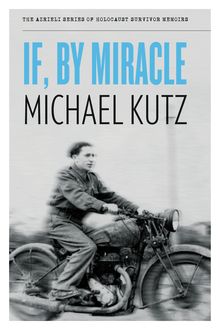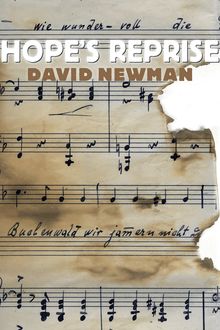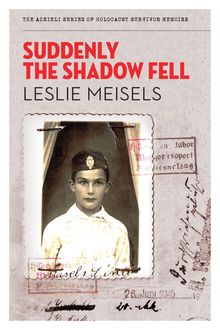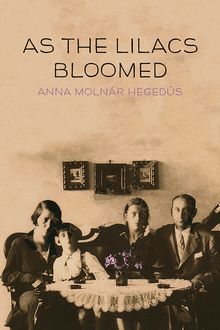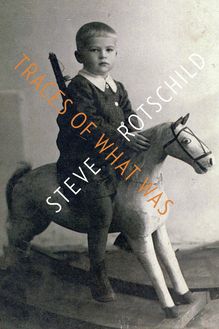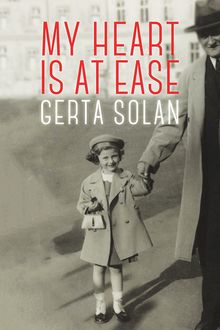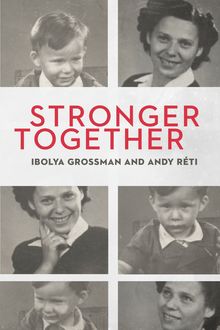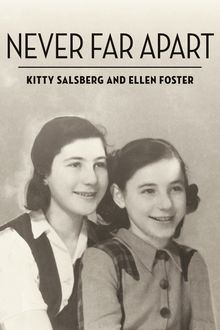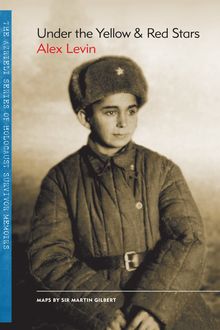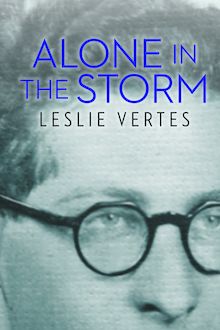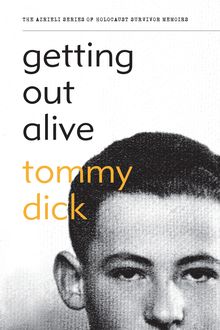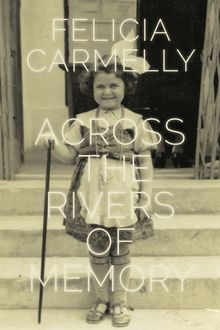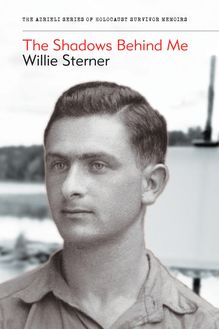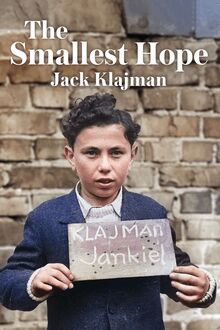A Name Unbroken , livre ebook
113
pages
English
Ebooks
2015
Vous pourrez modifier la taille du texte de cet ouvrage
Obtenez un accès à la bibliothèque pour le consulter en ligne En savoir plus
Découvre YouScribe en t'inscrivant gratuitement
Découvre YouScribe en t'inscrivant gratuitement
113
pages
English
Ebooks
2015
Vous pourrez modifier la taille du texte de cet ouvrage
Obtenez un accès à la bibliothèque pour le consulter en ligne En savoir plus
Publié par
Date de parution
01 septembre 2015
Nombre de lectures
0
EAN13
9781897470961
Langue
English
Publié par
Date de parution
01 septembre 2015
Nombre de lectures
0
EAN13
9781897470961
Langue
English
A Name Unbroken
Michael Mason
The Azrieli Series of Holocaust Survivor Memoirs
Naomi Azrieli, Publisher
Jody Spiegel, Program Director
Arielle Berger, Managing Editor
Elizabeth Lasserre, Senior Editor, French-Language Editions
Farla Klaiman, Editor
Elin Beaumont, Senior Educational Outreach and Events Coordinator
Catherine Person, Educational Outreach and Events Coordinator, Quebec and French Canada
Marc-Olivier Cloutier, Educational Outreach and Events Assistant, Quebec and French Canada
Tim MacKay, Digital Platform Manager
Elizabeth Banks, Digital Asset and Archive Curator
Susan Roitman, Office Manager (Toronto)
Mary Mellas, Executive Assistant and Human Resources (Montreal)
Mark Goldstein, Art Director
François Blanc, Cartographer
Bruno Paradis, Layout, French-language editions
Contents
Series Preface: In their own words...
About the Glossary
Introduction
Map
Dedication
Author’s Preface
First Ventures
Labour Service
Three Weeks
Taking Chances
The Forest Camp
Like a Dream
Searching for Normal
Le Havre to Hamilton
Businessmen
Remembrance
A Promise of Light
Epilogue
Glossary
Photographs
Copyright
About the Azrieli Foundation
Also Available
Series Preface: In their own words...
In telling these stories, the writers have liberated themselves. For so many years we did not speak about it, even when we became free people living in a free society. Now, when at last we are writing about what happened to us in this dark period of history, knowing that our stories will be read and live on, it is possible for us to feel truly free. These unique historical documents put a face on what was lost, and allow readers to grasp the enormity of what happened to six million Jews – one story at a time.
David J. Azrieli, C.M., C.Q., M.Arch
Holocaust survivor and founder, The Azrieli Foundation
Since the end of World War II , over 30,000 Jewish Holocaust survivors have immigrated to Canada. Who they are, where they came from, what they experienced and how they built new lives for themselves and their families are important parts of our Canadian heritage. The Azrieli Foundation’s Holocaust Survivor Memoirs Program was established to preserve and share the memoirs written by those who survived the twentieth-century Nazi genocide of the Jews of Europe and later made their way to Canada. The program is guided by the conviction that each survivor of the Holocaust has a remarkable story to tell, and that such stories play an important role in education about tolerance and diversity.
Millions of individual stories are lost to us forever. By preserving the stories written by survivors and making them widely available to a broad audience, the Azrieli Foundation’s Holocaust Survivor Memoirs Program seeks to sustain the memory of all those who perished at the hands of hatred, abetted by indifference and apathy. The personal accounts of those who survived against all odds are as different as the people who wrote them, but all demonstrate the courage, strength, wit and luck that it took to prevail and survive in such terrible adversity. The memoirs are also moving tributes to people – strangers and friends – who risked their lives to help others, and who, through acts of kindness and decency in the darkest of moments, frequently helped the persecuted maintain faith in humanity and courage to endure. These accounts offer inspiration to all, as does the survivors’ desire to share their experiences so that new generations can learn from them.
The Holocaust Survivor Memoirs Program collects, archives and publishes these distinctive records and the print editions are available free of charge to educational institutions and Holocaust-education programs across Canada. They are also available for sale to the general public at bookstores. All revenues to the Azrieli Foundation from the sales of the Azrieli Series of Holocaust Survivor Memoirs go toward the publishing and educational work of the memoirs program.
•
The Azrieli Foundation would like to express appreciation to the following people for their invaluable efforts in producing this book: Doris Bergen, Sherry Dodson (Maracle Press), Therese Parent, Allegra Robinson, and Margie Wolfe and Emma Rodgers of Second Story Press.
About the Glossary
The following memoir contains a number of terms, concepts and historical references that may be unfamiliar to the reader. For information on major organizations; significant historical events and people; geographical locations; religious and cultural terms; and foreign-language words and expressions that will help give context and background to the events described in the text, please see the Glossary .
Introduction
Although Michael Mason was living in Budapest when Nazi Germany occupied Hungary in March 1944, his family was not originally from the Hungarian capital. They came from farther north, in the region of Carpatho-Ruthenia that was part of either Hungary or Czechoslovakia, depending on the precise location of the border that moved a number of times during the first half of the twentieth century. Michael was born in Beregszász – where Jews made up around one third of the population – when the city was part of Czechoslovakia as a result of the post-World War I settlement that saw Hungary lose close to two-thirds of its territory and over half its population. As a young boy, he moved with his family to the Hungarian border town of Sátoraljaújhely. The memoir gives the sense that his father – like many Hungarian Jews – was a proud “Magyar” who had fought during World War I for the multi-ethnic Austro-Hungarian Empire. In 1941, the family was on the move again – this time to Budapest. As Michael explains, this move to the capital was a response to the worsening economic situation his father faced as a result of the anti-Jewish laws implemented in the late 1930s.
Hungarian Jews were subjected to an increasingly intrusive legal attack across the interwar years, which were dominated by a series of right-wing governments under the Regent Miklós Horthy. In the ear ly 1920s, a numerus clausus that set a quota on Jewish university enrollment was enacted although ultimately never fully enforced. In the late 1930s, however, the “First Jewish Law” and “Second Jewish Law” placed limits on Jewish participation in the economy, professions and administration. This economic attack on Jews affected Michael’s father, who was forced to sell his tavern. Many Hungarian survivors who were children at the time remember these years as ones when their fathers lost their jobs and the family suffered increasing economic hardship. A further attack came in 1941 when the Hungarian state enacted the third in this series of anti-Jewish laws. Paralleling the Nuremberg Laws enacted in Nazi Germany, this legislation prohibited marriage and sexual relations between Jews and non-Jews.
However, even as restrictions were being implemented, Hungarian Jews were seen to be living in something of an island of relative safety during the early 1940s compared to the Jewish communities in the countries around them. This was perhaps all the more surprising given that Hungary had become an ally of Nazi Germany in November 1940, largely with a view to regaining territory lost in the aftermath of World War I . These aims of territorial enlargement were successful, with border regions such as those that Michael was originally from coming back under Hungarian control. During the early 1940s, Hungary was seen to be something of a reluctant ally as far as solving the so-called “Jewish question” went. Admiral Horthy rejected German demands for wholesale deportations. The argument of the Hungarian state was that Jews were already being dealt with by the laws that the state had enacted, and were too central to the Hungarian military economy to be removed en masse.
In March 1944, everything changed when Germany invaded its somewhat reluctant ally. How far this occupation was triggered by the existence of a large extant national Jewish community in 1944 and how far by Hungarian attempts to extricate themselves from the war remains a debate among historians. Whatever the reason, the occupation meant a dramatic change in fortunes for Hungarian Jews, Michael’s family among them. It was, as Michael remembers, a rather unusual occupation. Writing of the events of March 19, 1944, Michael describes a “friendly” occupation, with German troops in Budapest looking “more like a parade than an occupation force.” His comments are significant. The occupying forces in Hungary were tiny, although they did include Adolf Eichmann. The rapid implementation of anti-Jewish measures in the aftermath of the German occupation depended on Hungarian collaboration at all levels – from the newly appointed government of former ambassador to Berlin Döme Sztójay, through the Interior Ministry and its triad of new appointees – Andor Jaross, László Baky and László Endre – to regional and local authorities and the rural gendarmes and urban police. Although the question of how “German” or “Hungarian” the Holocaust in Hungary was remains very much a live one among historians, politicians and the public in Hungary, it does seem clear from the research undertaken in the last couple of decades that the scale of the attack on Hungarian Jews owed much to opportunism on the part of significant elements of the Hungarian state and society, fuelled by a desire for economic enrichment at the Jews’ expense.
The events of the spring and summer of 1944, in the immediate aftermath of the German occupation, are shocking because of the rapidity and lateness with which this “last chapter” of the Holocaust was carried out. There were only fifty-six days between the occu
